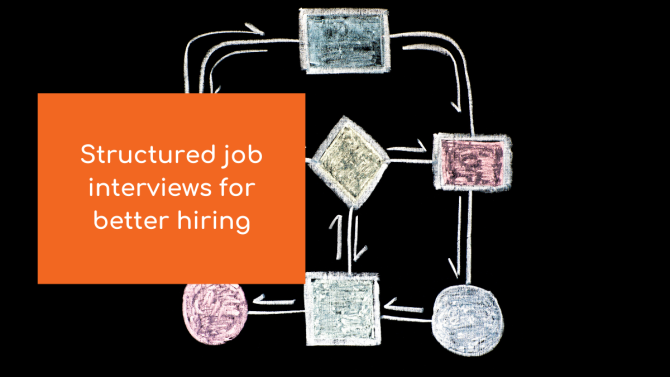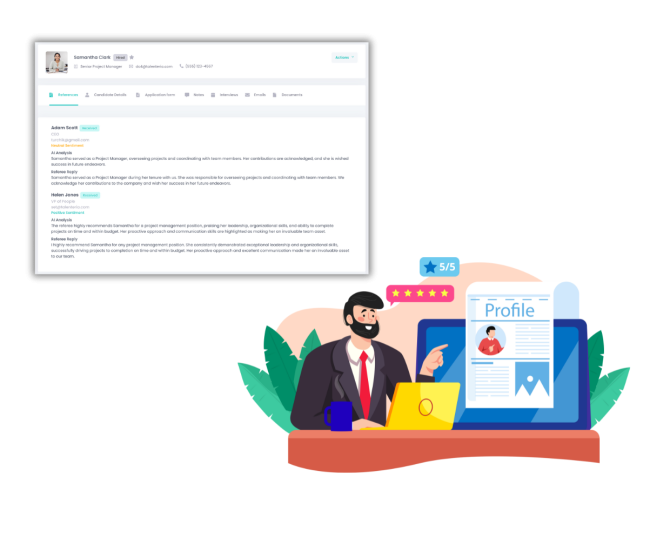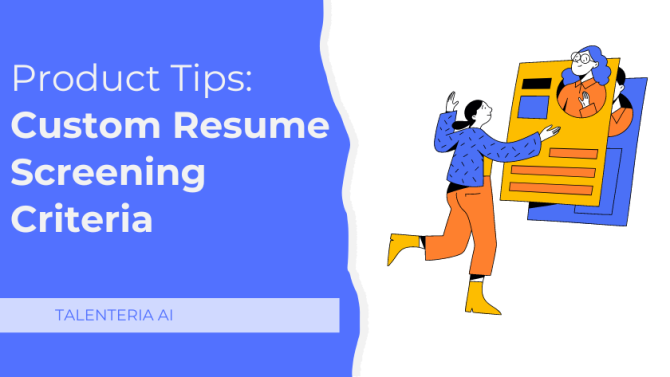
The HR sector does not stand still. Every year, month, or even a week, a completely new trend appears. One such trend is structured interviews. Although this type of interview was invented a long time ago, only now people begin to understand the main advantages of such a hiring process over a regular one.
What is the difference?
Most well-known companies such as Google and Amazon have long been using structured interviews to hire employees. What are the main differences between a regular interview and a structured one, and why did everyone start using the second type so abruptly?
Everything is simple since a structured interview is much more effective in recruiting talents for a team than the standard employment process.
There are many differences between these two concepts. Firstly, when using an unstructured interview, questions to the candidate are asked according to СV. Most often, they relate to those topics that were not indicated in the resume of a potential employee. In the case of a structured interview, another way is used. People are asked only those questions that have been outlined in advance, moreover, the same for all candidates, which is the main difference between these two concepts.
Besides, in a classic interview, the recruiter does not prepare in advance, asking most of the questions at random, which also reduces the efficiency of recruiting, because it is simply impossible to compare the answers of different candidates.
Also, a structured interview consists of blocks that smoothly flow into one another and fully helps to assess the potential of the candidate.
When using a structured interview, the recruiter does not rely so much on the candidate's CV, which allows them to go beyond the framework that was proposed by the applicant. Also, this allows you to determine the potential employee’s strengths and weaknesses. A structured interview sets the goal and a clear path to achieve it, thereby reducing the time it takes to screen a candidate and improving the selection process.
All theme-based blocks that were previously compiled by an HR specialist should be disclosed during the interview. Also, a clear sequence of questions is created and in no case is this sequence violated. It is to more accurately assess all of the candidate’s capabilities.
Theme blocks can be completely different depending on the job, the average level of training for the applicants, and their work experience.
All questions involve detailed answers, which also affect the entire course of the interview. The more detailed answer the candidate gives, the more interest in the position they have, which is also one of the components of their development potential in the team. Thus, even the motivation of the future employee is checked.
One of the most important aspects of this type of interview is the recording of all the data obtained in writing. The data obtained is the purpose of conducting a structured interview.
Next, the recruiter compares all the answers and selects the most motivated candidate with the best skills.
The main benefits of a structured job interview
Using this type of interview, you get a huge number of benefits:
- The ability to compare the level of training and motivation of all candidates;
- Making personnel decisions will be as effective as possible;
- An established interview template will help not only the applicant but also the recruiter;
- A prepared interview plan will save a lot of time for the screening of other candidates for the position.
A structured interview provides an opportunity to find the best candidate and show all applicants that the company is interested in this search. When a candidate knows that their skills and knowledge will be tested in the same way as that of all the other applicants, they will work hard to achieve the best possible result. This once again confirms that a structured interview can show even a person's hidden talents, showing them from the best side.
Besides, all talented candidates will only be up for conducting this type of interview, because not only is it in the company's interests to find a good employee, but the specialist also wants to work in a modern and developed company that follows the latest trends.
Structure interview tips
The interview process can be set in different ways. It all depends on the requirements for the candidate, position, and many other aspects that the recruiter should take into account when drawing up a plan.
Sometimes, even the average statistics of all applicants are taken to further increase the effectiveness of the interview.
The following sections may be included:
- Professional competence;
- Teamwork skills;
- Previous work experience and results;
- Why the candidate chose this position;
- What the candidate expects from working in your company;
The structured interview questions are completely dependent on the interviewing company, its corporate values, and the expectations of the applicants, so you can experiment here.
For example, if you are looking for a young specialist, then questions about their work experience will not be as useful as questions for motivation to work in your company, the education received, and other similar things. Yes, learning about the beginning of a career is also an important task, but since such a specialist cannot have a lot of work experience, it will not be as important as the other aspects.
If you are looking for an experienced specialist, then everything is exactly the opposite. In this case, the education they received will not play such an important role as the skills, experience, and results of previous projects. In this case, it is worth compiling an interview structure to reveal the full potential of the candidate.
Also, questions about leisure time are popular, because self-development is also part of the applicant's motivation and potential.
If you are looking for a department head, it would be more expedient to ask common interview questions about the decisions they have made at previous jobs to increase the company's cash flow, optimize the work of staff, and so on.
When structuring an interview, it is necessary to consider the following factors:
- The position the applicant is seeking. This helps to decide what to ask the potential employee about during the interview.
- Requirements for the applicant, job description. This is necessary to understand what competencies should be disclosed in the interview and to carefully draw up a list of questions.
- Subordination. This will help identify teamwork skills. For example, if you are looking for a leader, then they must be able to find a common ground with their juniors, and vice versa, the junior employee must obey their superior.
- Financial capabilities of the company. The organization is always interested in finding the best candidate, but sometimes the salary requirements for such candidates are very high. You need to immediately find out what expectations a potential employee has from working in the company to motivate them for productive work.
- Requirements for the organization of work. This will help people to make out whether a person will be able to adapt to the prevailing working conditions. Otherwise, it will be unprofitable to cooperate with them
Assessment of candidates
When using a structured interview, you should be clear about what the company expects from the candidate for the position. Otherwise, this type of interview won’t be set up correctly. If you use the wrong questions, then you will get the wrong specialist you were looking for.
It is also necessary to evaluate applicants according to a plan. Most often, a special document is created by an HR specialist. It provides examples of responses that you can expect to hear from job seekers.
All examples are divided into four groups:
- Excellent answer;
- Good;
- Mediocre;
- Bad.
Thus, the best candidate will be the one with the best result across all blocks. This is the structure that Google uses.
Also, a prerequisite for a structured interview is the recording of all responses to a voice recorder or in writing. This will help evaluate all candidates more accurately, and it can also help the independent reviewer evaluate the work of the recruiter.





